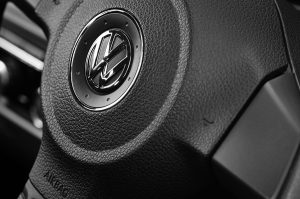Everyone Makes Mistakes, But Not Everyone Owns Up - Including Corporations
 Michael Babboni
Personal Injury
We live in an imperfect world, and we are imperfect people. Whether it’s building cars, creating products for children, or just cooking breakfast, people make mistakes. It’s really unavoidable. If a company or an individual happens to make a significant mistake, one that’s dangerous or even deadly, then they will have to compensate the people affected, whether that means a paid recall, a refund, or some other financial settlement.
Michael Babboni
Personal Injury
We live in an imperfect world, and we are imperfect people. Whether it’s building cars, creating products for children, or just cooking breakfast, people make mistakes. It’s really unavoidable. If a company or an individual happens to make a significant mistake, one that’s dangerous or even deadly, then they will have to compensate the people affected, whether that means a paid recall, a refund, or some other financial settlement.However, here’s the thing: the longer a company or person waits to address the issue, and the more they lie about it, the worse the problem will become.
An Honesty Issue
The Consumer Product Safety Commission recently had to remind the company phil&teds of this fact thanks to the unsafe design of their MeToo highchair. The clamp for the highchair’s table was too loose, and as a result a child could slip off the chair and fall or else the clamp could crush a child’s hand, causing a serious injury.
Allegedly, the company received reports about the injuries its chair had caused, but it failed to inform the CPSC about the problem for over a year. Not only that, but when it did finally pass along this information, phil&teds failed to report just how dangerous the chairs were. This included underreporting the number of incidents, failing to disclose the fact that the highchairs posed an amputation hazard, and sending the CPSC a version of the highchair which wasn’t the exact model sold to consumers.
When the CPSC announced its $3.5 million fine, it made it clear that this amount was based both on the company’s lack of timeliness and its lack of honesty. Phil&teds had tried to ignore the problem, and when that failed they tried to lie about the extent of the problem. In the end, however, these tactics only wound up making things worse.
Broader Applications
What’s true about corporations and federal agencies is also true about private individuals and civil cases in general. It can be hard to own up to a mistake and pay for what you’ve done wrong, but ultimately it’s the best solution you can hope for. It can be tempting to try to avoid this result by ignoring what happened and denying the extent of the problem, but you will only make things worse in the end.
For instance, Chrysler Fiat Automobiles recently paid for their negligence to the tune of $105 million after the National Highway Traffic Safety Administration uncovered the company’s attempts to avoid recalling all the vehicles with defective parts. They did this by failing to report defects and by failing to inform all their customers about active recalls.
What may be worse, however, is how Volkswagen actively installed special “defeat devices” in their diesel cars which were designed to fool emissions tests. This gave VW the chance to lie about how effective and how environmentally friendly their engines were. However, now that the lie is out, the carmaker may wind up facing a record-shattering $18 billion fine. Damages won’t be limited to the fine, either, as customers will want compensation for buying a vehicle which as it turns out is either low-emissions or high performance, but not both (as the company promised).
Whether you’re representing a major corporation or just yourself, honesty is always the best policy when it comes time to own up to your mistakes. It may not be cheap to pay for what you’ve done, but if you try to ignore the situation or lie about what’s happened, it’ll always cost you more in the end.
